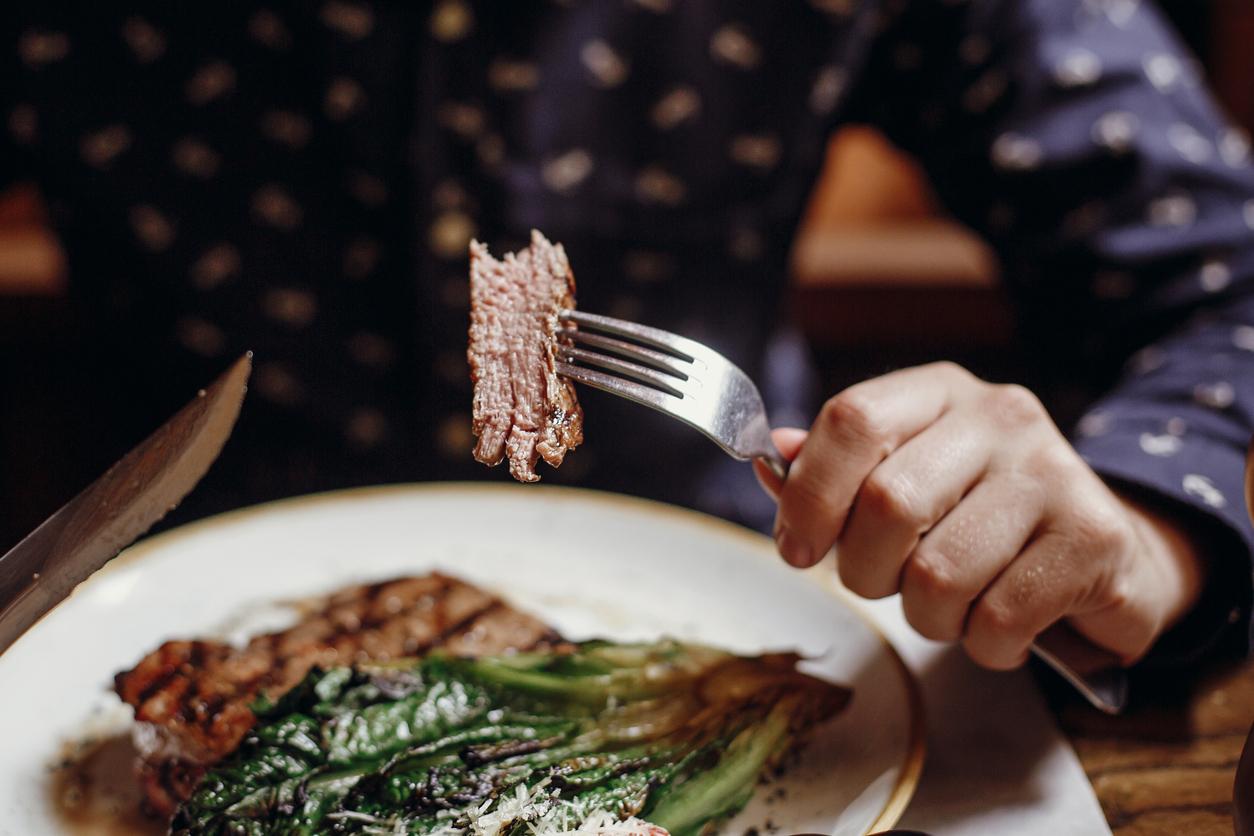Red meat could be part of a balanced diet if it is not consumed in excess, according to an Australian expert who recalls that vegetable alternatives, better for health and for the environment, exist.

- An expert analyzes the evidence on the health dangers of eating red meat.
- Processed or unprocessed red meat does increase the risk of colorectal cancer.
- She advises paying attention to the proportion of meat consumed, the method of cooking and finding plant-based alternatives to meat to minimize health risks.
It is commonly accepted that eating red meat is unhealthy, as it can increase the risk of heart disease, type 2 diabetes, certain cancers and premature death. In The Conversationresearcher Katherine Livingstone of theInstitute for Physical Activity and Nutrition from Deakin University (Australia), takes stock of the scientific work on the subject.
Red Meat and Diseases: Why Studies Might Be Biased
According to the expert, most of the evidence comes from observational studies, which cannot determine whether eating red meat is actually the cause of the condition. “Most of the evidence comes from observational studies, because it’s just not ethically possible to ask someone to eat large amounts of meat every day for many years. to see if he develops cancer”she wrote.
In particular, it differentiates between the impact of processed red meat (preserved by smoking, curing or salting, or by adding chemical preservatives such as sausages, ham, bacon and hot dogs) and red meat not transformed.
Processed meat is particularly harmful to health
Researcher Katherine Livingstone recalls the available data: in a analysis Of 37 studies, the authors found weak evidence for an association between unprocessed red meat consumption and heart disease and type 2 diabetes.
On the other hand, with regard to processed meat, works recent studies have shown that for every 50g slice of processed meat consumed per day, the risk of heart disease increased by 26% while the risk of type 2 diabetes increased by 44%, on average.
The link between red meat and colorectal cancer is real
On the other hand, the consumption of processed or unprocessed red meat would have an impact on the risk of colorectal cancer. According to one study involving nearly 500,000 people, each 50 g portion of red meat consumed per day increases the risk of colorectal cancer by 18%. And every additional 25g of processed meat consumed per day, the equivalent of a slice of ham, increases the risk by 19%.
Colorectal cancer – which is a malignant tumor of the lining (inner lining) of the colon or rectum – is the third most common cancer in men (after prostate cancer and lung cancer) and the second in men. the woman (after that of the breast), according to theHealth Insurance.
Why shouldn’t you grill your meat?
The expert also points out that the method of cooking red meat is important. Grilling a steak leads to the formation of chemical compounds which have been shown to be carcinogenic at very high doses in animal models. Moreover, some studies in humans have been linked to increased cancer rates.
The scientist therefore recommends as far as possible to opt for unprocessed or lean cuts of meat, and to do as little grilling as possible.
Alternatively, if you’re looking for healthier alternatives to meat – both health and environment-friendly, Katherine Livingstone has compiled a list. She suggests turning to minimally processed tofu, beans and lentils. These foods are, in fact, particularly rich in vegetable proteins.
















